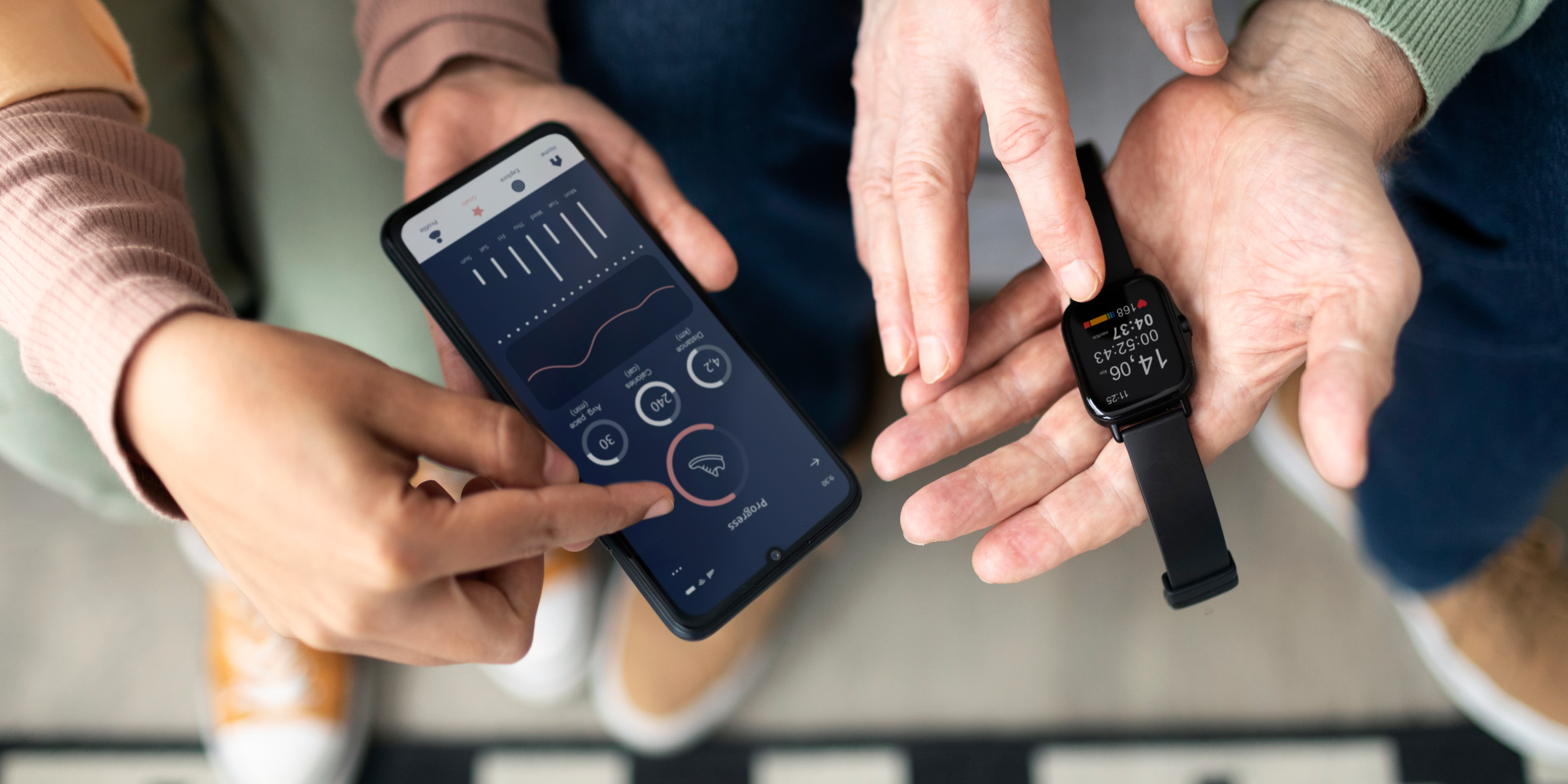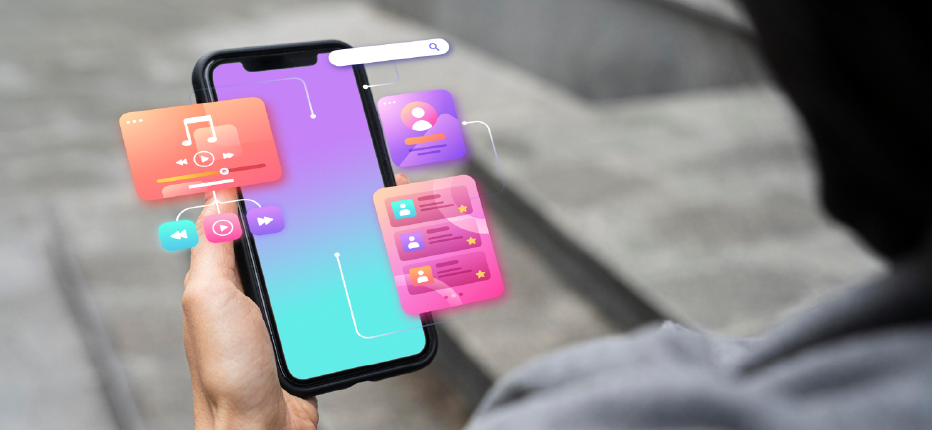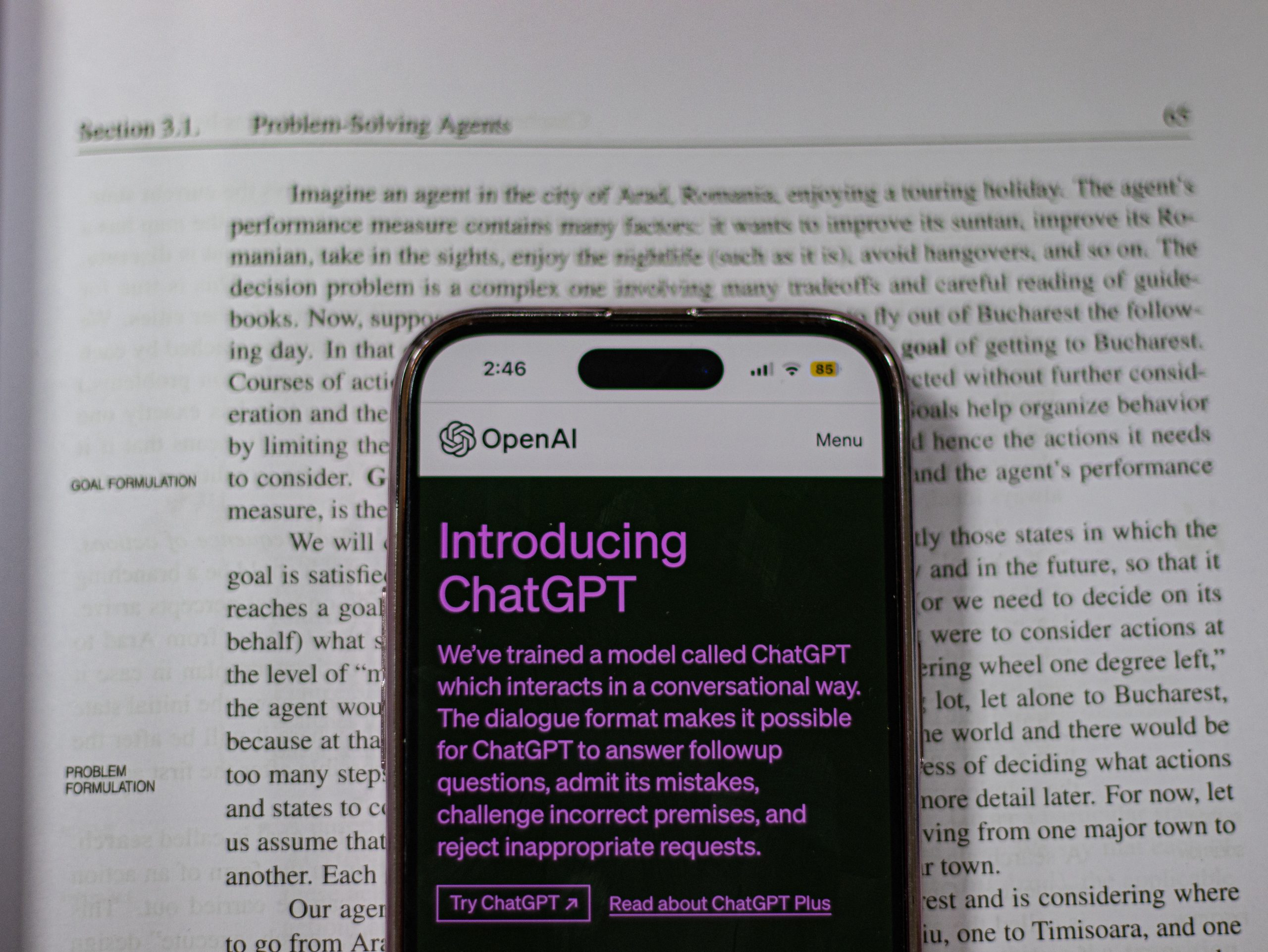In today’s fast-paced world, health monitoring has become a crucial aspect of our daily lives. With the advancement in technology, healthcare apps have gained popularity, allowing individuals to keep track of their health status in real-time. If you’re considering a healthcare app development company in London, UK, it’s essential to understand the factors that influence its cost. In this article, we will take a detailed look at the basics of apps, the factors influencing their cost, the average cost of building such an app in London, the steps involved, ways to reduce development costs, case studies of healthcare app development in London, and conclude with whether building a medical app in London is worth the investment.
Healthcare App: Definition & Market Overview
Health monitoring apps are mobile applications designed to help individuals monitor their physical fitness, track vitals, and manage medical conditions. These apps leverage various sensors and technologies available in modern smartphones to collect data such as heart rate, blood pressure, sleep patterns, and activity levels. The data obtained is then analyzed and presented to users in an easy-to-understand format, enabling them to make informed decisions about their health and well-being.
As a software development company with a proven track record, We at Wesoftyou have seen a rising demand for health monitoring apps, driven by the growing awareness of personal health and the increasing adoption of wearable devices. Health monitoring apps have the potential to revolutionize the healthcare industry by empowering individuals to take control of their health and well-being.
What is a Health Monitoring App?
A health monitoring app is a software application that allows users to track their health-related data and provides insights into their overall well-being. These apps typically offer features such as tracking sleep patterns, monitoring heart rate, counting steps, and providing reminders for medication intake. They may also include informative articles, personalized recommendations, and integration with wearable devices to provide a comprehensive health monitoring experience.
With the advancement of technology, healthcare apps have become more sophisticated and accurate in collecting and analyzing data. Some apps even use artificial intelligence algorithms to identify patterns and provide predictive analytics for potential health risks. This level of detail and accuracy allows users to have a comprehensive view of their health and make proactive decisions to improve their well-being.
Importance of Health Monitoring Apps
Health monitoring apps play a vital role in empowering individuals to take charge of their health. With the ability to track key vitals like heart rate, blood pressure, and activity levels, users can gain a deeper understanding of their well-being. Through data analysis and personalized insights, these apps enable users to make informed lifestyle choices, set health goals, and manage chronic conditions more effectively.
Moreover, health monitoring apps can bridge the gap between patients and healthcare professionals. By securely sharing data with medical practitioners, users can receive remote monitoring, feedback, and personalized guidance. This level of connectivity not only enhances the doctor-patient relationship but also enables early detection and prevention of health issues.
Furthermore, healthcare mobile apps have the potential to revolutionize healthcare research. With millions of users voluntarily sharing their health data, researchers can access a vast amount of information to study patterns, trends, and correlations. This data-driven approach can lead to breakthroughs in understanding diseases, developing new treatments, and improving overall healthcare outcomes.
In addition to individual benefits, healthcare apps can also have a positive impact on public health. By aggregating and anonymizing data, these apps can provide valuable insights into population health trends and help identify potential outbreaks or epidemics. This information can be used by public health authorities to implement targeted interventions and preventive measures.
As the field of health monitoring apps continues to evolve, we can expect to see more innovative features and integrations. For example, some apps are exploring the use of virtual reality to enhance the user experience and motivate individuals to engage in physical activities. Others are incorporating social networking elements to foster a sense of community and support among users with similar health goals.
In conclusion, healthcare mobile apps have the potential to transform the way individuals manage their health and interact with healthcare professionals. With advancements in technology and data analysis, these apps offer a wealth of information and personalized insights that empower users to make informed decisions about their well-being. As the demand for health monitoring apps continues to grow, it is crucial for software development companies like Wesoftyou to stay at the forefront of innovation and provide solutions that truly make a difference in people’s lives.
Factors Influencing the Cost of Building a Healthcare App
Before delving into the cost breakdown, it’s imperative to understand the factors that can influence the overall cost of a healthcare app development in London, UK. From our experience, the following factors have a significant impact on the development cost:
App Complexity and Features
The complexity and number of features you want to incorporate into your health monitoring app will directly affect the cost. Basic features like step tracking and sleep analysis are relatively simple to implement, while advanced features like real-time heart rate monitoring and integration with external devices require more complex development efforts.
Additionally, the more features you want to include, the more time and effort it will take to develop and test them. This can increase the overall cost of the project.
Furthermore, additional features such as a personalized AI assistant, social networking capabilities, or integration with third-party services like electronic health records (EHRs) can further contribute to the overall complexity of the app and subsequently increase the development cost.
App Design
The design aspect of the app is crucial in providing an intuitive and engaging user experience. Designing a visually appealing and user-friendly interface is essential to ensure app adoption and user retention.
The cost of app design may vary depending on the complexity of the design elements, customization requirements, and the need for a responsive design to cater to different screen sizes and operating systems.
Additionally, the design process may involve multiple iterations and revisions to achieve the desired outcome, which can add to the overall cost of the project.
Development Team Location and Size
The location and size of the development team involved in building the app also impact the overall cost. London is among the major tech hubs with a high concentration of skilled professionals.
However, the cost of hiring a development team in London may be higher compared to other cities or countries. This is due to the higher cost of living and the competitive nature of the tech industry in the city.
It’s worth considering outsourcing the development to a reputable company like WeSoftYou, which can offer competitive pricing without compromising on quality. Outsourcing to a company in a location with lower labor costs can help reduce the overall development cost while still ensuring a high-quality end product.
The size of the development team can also influence the cost. A larger team may be required to meet tight deadlines or to handle a larger scope of work. However, a larger team will also come with a higher cost.
It’s important to find the right balance between team size and project requirements to optimize cost and efficiency.
Cost to Develop a Healthcare App in London
The cost of a health monitoring app development in London can vary significantly depending on the factors mentioned earlier. While it’s challenging to pinpoint an exact figure without a detailed analysis of your app requirements, we can provide a rough breakdown of the costs involved:
Cost Breakdown
-
- App planning and ideation: This stage involves market research, competitor analysis, and defining the scope and features of the app. It can range from £5,000 to £15,000.
During the medical app planning and ideation stage, our team of experts will conduct extensive market research to understand the current trends and user preferences in the healthcare mobile app industry. We will also analyze your competitors’ apps to identify unique features that can set your app apart. The scope and features of your app will be carefully defined to ensure that it meets the specific needs of your target audience.
-
- App design: The design phase includes UI/UX design, wireframing, and prototyping. The cost can vary based on the complexity of the design and typically ranges from £5,000 to £20,000.
Our talented team of designers will work closely with you to create a visually appealing and user-friendly interface for your health monitoring app. Through wireframing and prototyping, we will provide you with a clear representation of the app’s layout and functionality. The design will be tailored to enhance the user experience and ensure seamless navigation.
-
- Healthcare app development: The development phase involves coding, integration of features, and ensuring smooth functionality. The cost can vary significantly, starting from £25,000 for basic features and increasing for more advanced functionalities.
Our experienced developers will bring your healthcare app to life by writing clean and efficient code. They will integrate the planned features, such as real-time data tracking, personalized health recommendations, and interactive user interfaces. The development process will focus on creating a robust and scalable app that can handle a large user base.
-
- Quality assurance and testing: Testing the app’s performance, functionality, and security is critical. The cost for quality assurance and testing generally ranges from £5,000 to £15,000.
Before your healthcare mobile app development and launching, we will conduct rigorous quality assurance and testing to ensure that it meets the highest standards. Our team of testers will perform various tests, including functionality testing, usability testing, and security testing, to identify and fix any bugs or issues. This process will guarantee that your app provides a seamless and secure user experience.
-
- Deployment and maintenance: After the app is developed and tested, it needs to be deployed to app stores and requires ongoing maintenance. The cost for deployment and maintenance typically ranges from £5,000 to £10,000.
Once your health monitoring app is ready, we will assist you in deploying it to popular app stores, such as the Apple App Store and Google Play Store. Our team will ensure that the app meets all the necessary guidelines and requirements for a successful launch. Additionally, we offer ongoing maintenance services to keep your app up to date with the latest technological advancements and address any future issues that may arise.
So the average costs of healthcare app development will vary from £167,000 to £850,000.
| Cost Component | Estimated Cost Range |
|---|---|
| Development | £50,000 – £200,000 |
| Design | £10,000 – £50,000 |
| User Interface (UI) Design | £10,000 – £50,000 |
| User Experience (UX) Design | £10,000 – £50,000 |
| Data Integration | £10,000 – £50,000 |
| Wearable Device Integration | £10,000 – £50,000 |
| Real-time Monitoring Features | £20,000 – £100,000 |
| Health Data Analytics | £10,000 – £50,000 |
| Notifications and Alerts | £10,000 – £50,000 |
| Testing | £5,000 – £30,000 |
| Deployment | £2,000 – £10,000 |
| Maintenance and Support | £20,000 – £100,000 |
Comparing Costs: London vs Other Cities
When considering the cost of building a healthcare app, it’s essential to compare the expenses in London with those in other cities. While the development cost in London might be higher due to the city’s high living costs, it’s important to consider the expertise and talent available. WeSoftYou, being a London-based software development company, offers competitive pricing without compromising on quality, making it an excellent choice for building your health monitoring app.
In addition to the cost factor, London also offers a vibrant and innovative tech ecosystem. The city is home to numerous tech startups, established companies, and renowned universities, fostering a collaborative environment for technological advancements. By choosing to build your healthcare mobile app in London, you gain access to a pool of highly skilled professionals and cutting-edge resources, ensuring the success of your project.
Furthermore, London’s diverse and multicultural population provides an excellent opportunity to test and validate your health monitoring app among a wide range of users. This diversity allows for valuable insights and feedback, enabling you to refine and improve your app based on real-world user experiences.
In conclusion, while the cost of building a healthcare app in London can vary, it is important to consider the expertise, talent, and resources available in the city. WeSoftYou, as a London-based software development company, offers competitive pricing and a wealth of experience in building innovative and successful apps. Contact us today to discuss your health monitoring app project and receive a detailed cost estimate tailored to your specific requirements.
3 Steps for Healthcare App Development
Building a healthcare mobile app involves several crucial steps to ensure its success. Let’s explore the key steps involved:
1. Ideation and Market Research
The first step in building a health monitoring app is determining the target audience, defining the app’s goals, and conducting thorough market research. Understanding user needs and identifying market gaps is critical to develop a unique value proposition for your app.
At this stage, partnering with a software development company like WeSoftYou can provide valuable insights into market trends, user preferences, and competitor analysis. With their expertise, you can refine your app idea and develop a comprehensive app strategy.
2. Design and Development
Once the app idea is solidified, the next step involves designing an intuitive user interface (UI) and developing the underlying functionality. The design phase includes wireframing, prototyping, and UX/UI design to create a visually appealing and user-friendly app.
The development phase involves coding, integrating features, and ensuring the app’s seamless performance. It’s crucial to maintain a balance between functionality and complexity to provide users with an enjoyable and efficient user experience.
3. Testing and Launch
Ensuring the app’s quality and reliability is critical before it is launched to the public. Rigorous testing needs to be performed to identify and fix any potential bugs, errors, or vulnerabilities.
Once the app has passed the testing phase, it can be submitted to app stores for approval and subsequently launched to the market. It’s crucial to have a well-defined launch strategy, including marketing and promotion activities, to maximize app visibility and user adoption.
Ways to Reduce the Cost of App Development
While building a healthcare app involves significant investment, there are several ways to optimize costs without compromising on the app’s quality. Here are some strategies to consider:
Outsourcing vs. In-house Development
Deciding between outsourcing the development or having an in-house team is a crucial consideration. Outsourcing app development to a reputable company like WeSoftYou can offer cost benefits while leveraging their expertise and experience.
By partnering with WeSoftYou, you can tap into our skilled development team’s talent without the financial burden of hiring and training an in-house team. This enables you to focus on your core business activities while ensuring the smooth progression of your app development project.
Using Pre-built Solutions
Utilizing pre-built solutions and software libraries can significantly reduce development time and cost. These solutions provide ready-made modules or features that can be integrated into your app, saving both development and testing efforts.
WeSoftYou has a vast library of pre-built modules and frameworks that can expedite the development process without compromising on your app’s quality or functionality. Leveraging these solutions can help streamline development and reduce costs.
Prioritizing Essential Features
During the app development process, it’s crucial to prioritize essential features based on user needs and market demand. Focusing on core functionalities and essential features initially and gradually adding more advanced features can help manage development costs and provide early market entry.
WeSoftYou can assist you in identifying and prioritizing key features based on industry best practices and user feedback. This ensures that your app delivers value to users without unnecessary costs.
Top Healthcare App Examples Built in London, UK
London has seen several success stories in the development of health monitoring apps. Let’s explore a couple of case studies:
Success Stories
One of the successful healthcare mobile apps developed in London is “FitWell,” which combines fitness tracking with personalized coaching and data analysis. FitWell focuses on providing users with actionable insights and recommendations to improve their overall fitness and well-being. The app has gained significant user adoption and positive feedback, making it a notable success in the health monitoring app market.
Lessons Learned
From our experience, the success of a healthcare app lies in its ability to deliver accurate and relevant insights to users in an engaging manner. Integrating AI and machine learning algorithms can elevate the app’s capabilities in providing personalized recommendations and predictions. Additionally, ensuring a seamless and intuitive user experience and maintaining data privacy and security are essential factors contributing to user satisfaction and app success.
Conclusion
In conclusion, London is a city at the forefront of technological advancements, making it an ideal location to build a healthcare app. However, building an app involves significant investment, influenced by factors such as app complexity, design, and development team location.
Despite the costs, investing in a healthcare app can yield substantial returns. The growing demand for health monitoring solutions, the potential to revolutionize the healthcare industry, and the opportunity to connect patients with healthcare professionals make building an app in London a worthwhile endeavor.
If you’re looking for a healthcare app development company in London, WeSoftYou can be your trusted partner. With our expertise in software development and experience in building apps, we can guide you through every step of the app development process, ensuring a cost-effective and successful outcome.
Contact us today for a free consultation or project estimation, and let’s embark on this exciting journey of building a healthcare app together!
Read how much does it cost to build Test Preparation app in London, UK.
FAQ
The development timeline can vary depending on the complexity of the app and the desired features. On average, it can take anywhere from three to six months. However, it’s essential to prioritize quality and user experience over speed to ensure a successful and reliable app.
Yes, healthcare apps can be seamlessly integrated with a wide range of wearable devices such as smartwatches, fitness bands, and heart rate monitors. This integration enhances the app’s capabilities by gathering data directly from the devices, providing users with real-time insights and accurate health tracking.
There are several monetization strategies for healthcare mobile apps. Common approaches include offering a freemium model with additional paid features, providing subscription plans for premium services or content, and integrating in-app advertisements or partnerships with relevant health-related brands.
Data privacy and security are of utmost importance for health monitoring apps. It’s vital to adhere to strict privacy regulations and ensure secure data storage and transmission. Implementing robust encryption methods and obtaining user consent for data collection and usage are essential steps in maintaining user trust and complying with legal requirements.





















